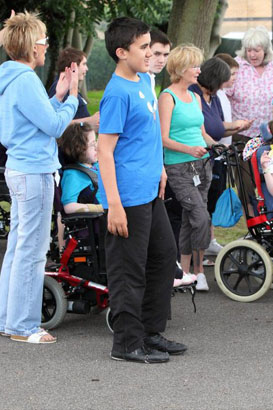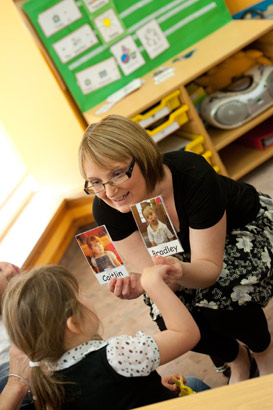A local authority’s Local Offer is a statutory resource (online and on paper)
that must set out in one place information about provision they expect to be available
across education, health and social care for all children/young people in and outside
their area who have special educational needs/disabilities including those who do
not have Education, Health and Care (EHC) plans.
(0-25 SEND Code of Practice, 2015, section 4.32)
In summary, it includes information on:
- Services across education, health and social care and from birth to 25;
- How to access specialist support;
- How decisions are made, and who makes them, including eligibility criteria for accessing services where appropriate;
- How to complain or appeal.
As well as public services, the Local Offer includes private, voluntary and community sector services. It is intended to evolve over time in response to local need and service-user feedback both on a continuing basis and through an annual review.
Local authorities must solicit and publish comments received and how they will respond to them, including developing action plans in consultation with parents and children/young people.

The Children and Families Act 2014 introduces a duty on every local authority to publish and maintain a Local Offer. The Local Offer can be thought of as a visible expression of key 'integrated working' initiatives:
- The Joint Strategic Needs Assessment – local Health and Well-being Boards are responsible for the identification of local needs across education, health and care services;
- Clinical Commissioning Group activities – in response to identified need
and service
user feedback; - Involvement of services (including schools) – statutory, public, charitable and voluntary;
- Involvement of children/young people with special educational needs/disabilities
and
their families.
Each of these activities informs the others. Delivery of the Local Offer is monitored to ensure the offer improves over time and reflects the current needs of the population of children/young people with special educational needs/disabilities. Local authority councillors are held to account to ensure this is done, and clinical commissioning groups are monitored against the NHS Mandate by NHS England.

'The Local Offer must be developed by local authorities and their health partners, together with children and young people with SEN and disability and their families. The Local Offer should build on the JSNA [Joint Strategic Needs Assessment] and the analysis of local SEN and disability needs. Other organisations [eg schools and other educational providers]… have a duty to co-operate with the local authority in drawing up the Local Offer.'
Schools will also be interested in the health provision provided available to children/young people with special educational needs and disability – click here. However, the Local Offer is for all children/young people who have special educational needs or disabilities, not just those with complex needs who have Education, Health and Care plans.
'As well as providing information about the services that the local authority expects to be available the Local Offer should also perform an important function as a tool to improve provision by setting out [information about] how services will meet local need and achieve the outcomes set out by the joint commissioning arrangements.'
(Council for Disabled Children, 2014)
A local authority's Local Offer covers a massive range of services, provision and information. For more detailed information about what these are, who contributes, what it contains and arrangements for its preparation, review and publication read:
- Level B of this module;
- 0-25 SEND Code of Practice, Chapter 4;
- The Special Educational Needs (Local Offer) Regulations 2014 (Clause 30);
- The Children and Families Act 2014 (section 30).
The Local Offer must include where to find the
list of non-maintained
special schools and independent schools catering wholly or mainly
for children
with special educational needs, including specialist schools.
It will also include general services (eg travel), how to request a Personal Budget, social and leisure opportunities, planning for adulthood and independent living (eg finding employment, training, apprenticeships, somewhere to live, etc).
For a Local Offer checklist created through the special educational needs/disability reform pathfinders, click here.
You can appreciate the complexity of the resource from these maps of one Pathfinder local authority's Local Offer. Click here.
For more comprehensive guidance and case studies on the Local Offer, visit the SEND Pathfinder website.

The Local Offer must also meet the following requirements:
- The local authority must involve parents and children/young people in developing and reviewing the Local Offer, and cooperate with service providers.
- The Local Offer should be promoted to children/young people with special educational needs and disability and their families, and the information should be easy to understand and jargon free.
- The Local Offer must cover available provision across education, health and social care from the ages of 0 to 25, with details of how these services can be accessed and any admission or eligibility criteria. It must also include clear details of where to go for information, advice and support, as well as how to make complaints about provision or appeal against decisions.
- The Local Offer must be clear about how commissioning decisions and decisions about services are made and who is accountable and responsible for them.
(Council for Disabled Children, 2014)

All schools must cooperate with the local authority in drawing up and reviewing the Local Offer, and must also publish an SEN Information Report on their own website, which expands on the school's Local Offer contribution, on their website, together with a link to the local authority's Local Offer.
Click here for a document showing what each should include.
'The local offer and SEN support provided in schools will be key to ensuring that
the needs of all children and young people, including those who do not have an EHC
Plan, are appropriately met.'
(Communication Council, 2014)

Schools are under a duty to publish (both on their website and on paper) an SEN Information Report, which gives more detailed information than the Local Offer about their provision for children/young people with special educational needs/disability.
The information in the report should be updated annually with any changes to the information occurring during the year being updated as soon as possible.
The people with legal responsibility for the SEN Information Report are the governing bodies of maintained schools and maintained nursery schools and the proprietors of academy schools.
As part of the SEN Information Report, they must publish information on their websites about the implementation of the governing body’s or the proprietor’s policy for pupils with special educational needs/disabilities.
Click here to find out the information that needs to be in the School SEN Information Report compared with the Local Offer.

Listen to parents and professionals discuss the Local Offer at a nasen workshop before the special educational needs/disability reforms were implemented in September 2014.
Have the fears raised been justified by the experiences of service users and professionals in your service?
Share your thoughts on the discussion points with a colleague. Find out from young people and parents you work with how they use the Local Offer, and how effective it has been for them. Think about how your service could support them to increase their engagement with the Local Offer.

Legislation and guidance
- Children and Families Act 2014
- The Special Educational Needs and Disability Regulations 2014
- Special Educational Needs and Disability Code of Practice:
0-25 years (Department for Education, 2015)
Other publications (1)
- Communication Council (2014) Implementing the SEND Reforms: Joint
commissioning for children and young people with SLCN. Report from The Communication
Council. London: Communication Council/Communication Trust. [Online at: http://www.thecommunicationtrust.org.uk/policy-and-practice/send-reforms/support-around-joint-commissioning-for-slcn/joint-commissioning-for-slcn-free-report;
accessed: 14.3.15]

Other publications (2)
- Council for Disabled Children (2014) Using the Children and Families Act 2014 to Improve Outcomes for Children and Young People with SEN and Disability: A briefing for health services. London: CDC. [Online at: http://www.councilfordisabledchildren.org.uk/media/531215/nhs-england-briefing-document.pdf; accessed: 16.3.15]
Media